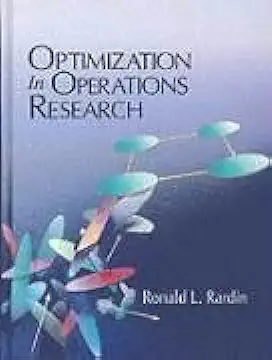
Optimization in Operations Research - Ronald L. Rardin
Optimization in Operations Research: A Comprehensive Guide to Solving Complex Problems
Introduction
In today's fast-paced and competitive business environment, organizations are constantly seeking ways to optimize their operations and gain a competitive edge. Optimization in Operations Research provides a comprehensive and practical guide to the field of optimization, empowering readers with the knowledge and tools to solve complex problems and make informed decisions.
Key Features
- Comprehensive Coverage: The book covers a wide range of optimization techniques, including linear programming, nonlinear programming, integer programming, dynamic programming, and more.
- Real-World Applications: Each chapter is complemented with real-world case studies and examples, illustrating how optimization techniques are applied in various industries and settings.
- Step-by-Step Explanations: The book provides detailed explanations of each optimization technique, making it accessible to readers with different levels of mathematical background.
- Interactive Exercises: Each chapter includes interactive exercises and problems, allowing readers to practice and reinforce their understanding of the concepts.
- Software Integration: The book introduces popular optimization software packages, such as Gurobi and CPLEX, and provides guidance on how to use them to solve optimization problems.
Benefits of Optimization in Operations Research
Optimization techniques offer numerous benefits for organizations, including:
- Improved Decision-Making: Optimization models provide a systematic and quantitative approach to decision-making, helping organizations make informed choices based on data and analysis.
- Increased Efficiency: Optimization techniques can identify inefficiencies and bottlenecks in operations, leading to improved efficiency and productivity.
- Cost Savings: By optimizing their operations, organizations can reduce costs and allocate resources more effectively.
- Enhanced Competitiveness: Optimization techniques give organizations a competitive advantage by enabling them to respond quickly to market changes and make data-driven decisions.
Conclusion
Optimization in Operations Research is an essential resource for professionals, students, and researchers in the fields of operations research, management science, and engineering. With its comprehensive coverage, real-world applications, and interactive exercises, this book provides a solid foundation for understanding and applying optimization techniques to solve complex problems and achieve organizational success.
Call-to-Action
Don't miss out on this opportunity to enhance your problem-solving skills and gain a competitive edge in your field. Order your copy of Optimization in Operations Research today and start your journey towards optimization mastery!
Enjoyed the summary? Discover all the details and take your reading to the next level — [click here to view the book on Amazon!]